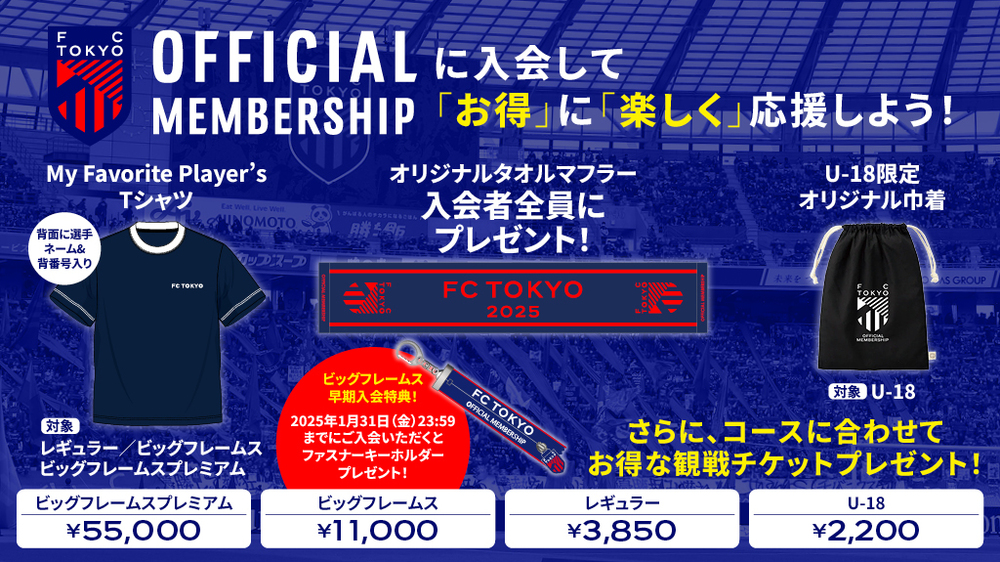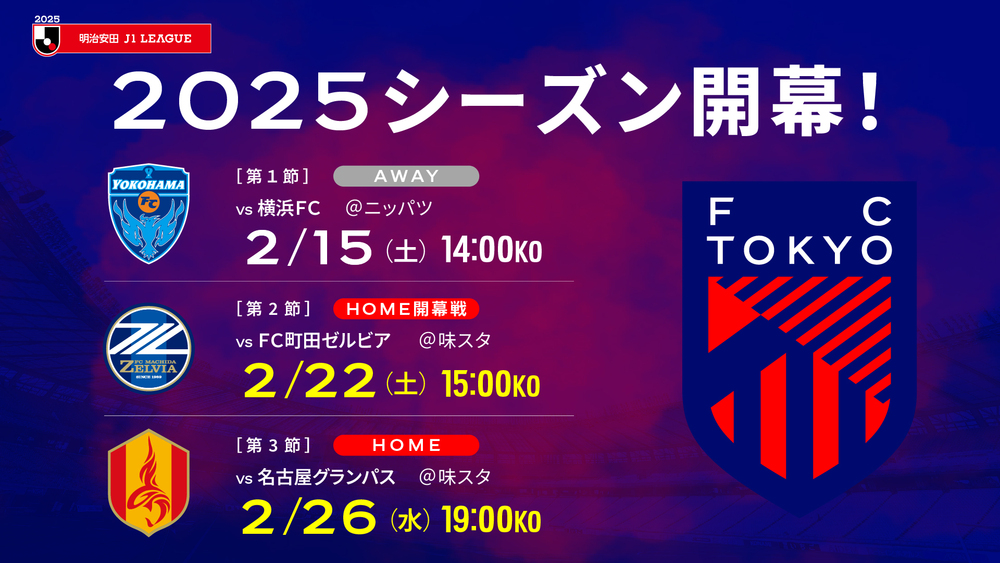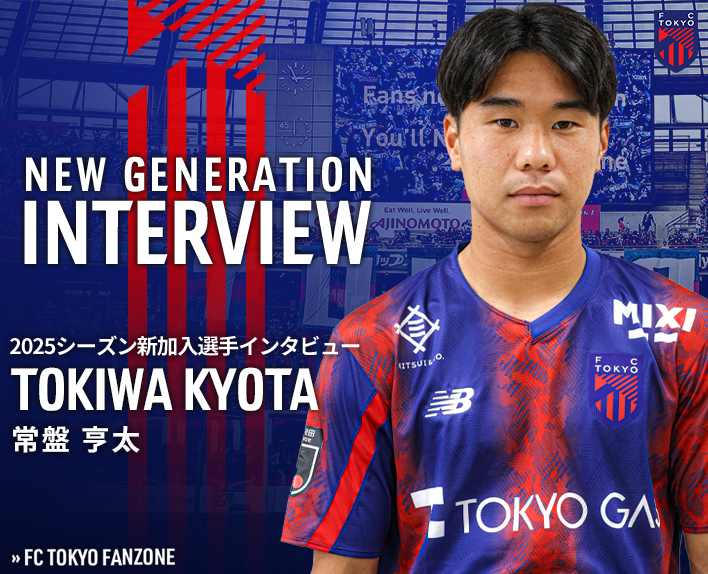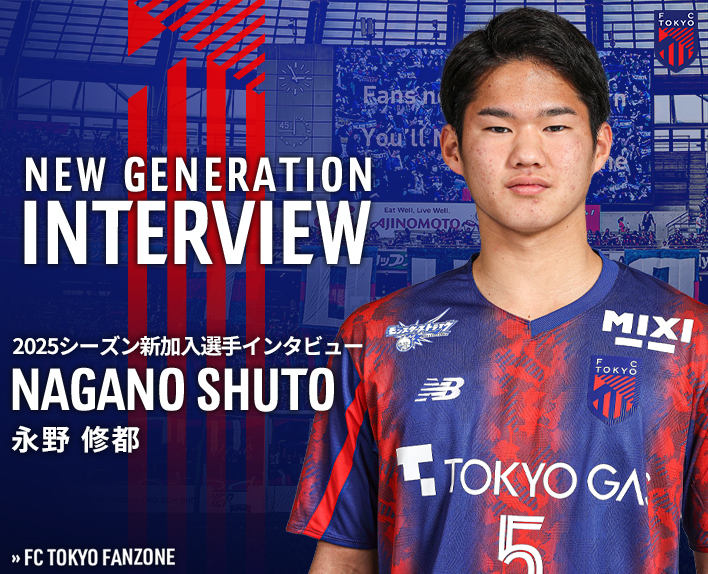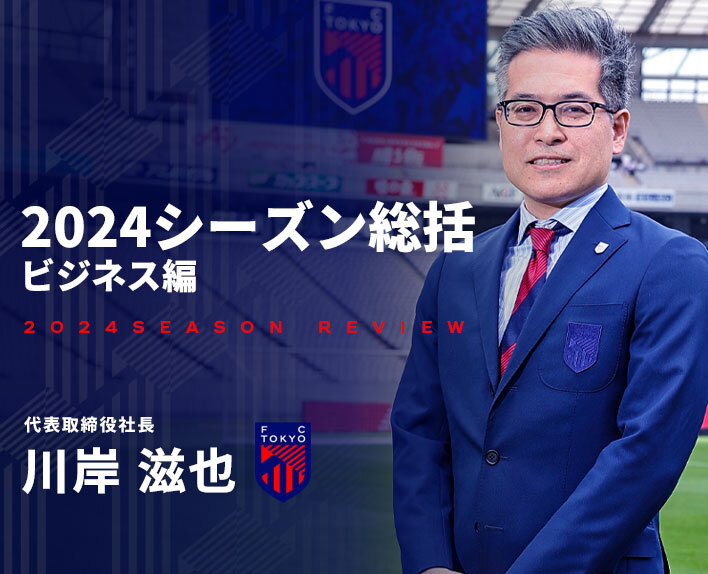From the academy, via Meiji University, to the top team──. Another passionate man with blue and red blood has returned to Tokyo. Kouta Tokiwai, who missed the chance to be promoted to the top team during his time at FC Tokyo U-18, has grown significantly both as a player and as a person in university. He has evolved from an anchor-type player to one who fiercely battles from box to box, working on his own updates while being conscious of his senior, Shuto ABE, who has followed the same path. What is his determination to challenge the professional world with a strong "love for Tokyo" in his heart?
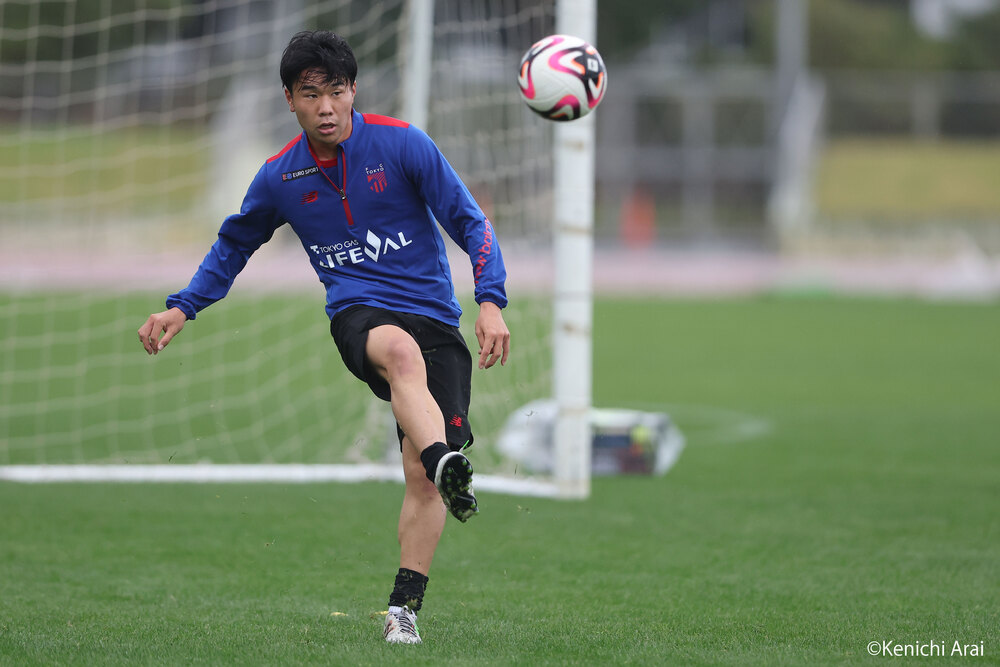
──First of all, welcome back.
Thank you.
──I joined after FC Tokyo U-18 and Meiji University. What changes do you think you have undergone in these four years?
First of all, I think I have changed significantly in terms of my human qualities before soccer. Until then, I was very particular and had a specific way I wanted to play, especially until high school. However, that kind of individual play was not enough to reach the professional level. After entering Meiji University, I started to listen to those around me and worked on being flexible while still having my own principles. I learned from Coach Daisuke KURITA (Meiji University Athletic Association Soccer Club) that, in any situation, it is important not to overthink and to learn from the good qualities of others. Until then, I had built a wall at a certain point, thinking, 'I can't do it.' Instead of making such determinations, I have started to break down that wall and think differently. I believe I have grown to the point where I can have the mindset that 'it's not impossible.'
What areas have you grown in your play?
I feel that the area where I have grown the most is definitely in the broadening of my range. This applies to both my movement range and my field of vision. I entered the school believing that my strengths were in my physical activity, ball contests, and transitions, but I received constant guidance from Coach Kurita on how to expand those characteristics in narrower areas and in box-to-box situations. I have been very conscious of my movement range in both offense and defense.
──The trigger for such changes was largely missing out on promotion to the top team.
That's right. When I couldn't get promoted, I was thinking, 'I'm not that kind of player, so this kind of play is impossible for me.' Then, realizing that I couldn't get promoted, I came to the conclusion that I needed to be able to perform various plays and also showcase my own characteristics more.
Have you felt that there are parts of yourself that have changed and are effective while participating in the top team's camp before the opening or during practice in Kodaira?
When I was in my second year of high school, I participated in the J3 League with FC Tokyo U-23, but at that time I was overwhelmed and couldn't showcase my characteristics. Through participating in camps and practices, I gained confidence that not only the "three basic principles" of Meiji University (work rate, ball contests, transitions) were important, but also that my attacking momentum could be effective.
──The midfield in Tokyo is a highly competitive position. Have you considered other options?
Since the time I wasn't playing in matches as a first-year student, I had Kazunori YOSHIMOTO, the scout, come to me, and I had no other thoughts at all. I believed that competing in a high-level environment in Tokyo and being able to play in matches there is what gives value as a soccer player, so there were no other options.
──As a professional, how do you want to shape your career from here?
I believe that graduates are no longer young and that I have been brought in as an immediate asset. The current team has a very strong depth in the defensive midfield position, and I think there are many high-level players. However, I want to showcase my characteristics without being intimidated and aim for a starting position in the opening match, and I want to become a player who can lead Tokyo to the league championship as a central figure in the team. I have always been a defensive player, and I believe I excel at challenges, predictions, recovering second balls, and taking the ball away from opponents. For those who knew me during my academy days, I might have the image of an anchor-type player, but I want to be a player who moves vigorously from box to box and can contribute both defensively and offensively. I believe that winning the ball in defense can also start an attack, so if I win the ball, it means I've taken one player out of the play. I want to maintain strong intensity in defense while also being a driving force in attack. I want to be a player who can make decisive defensive plays that can determine the outcome of the match and score goals to also decide the match. I know it's a bit greedy, though.
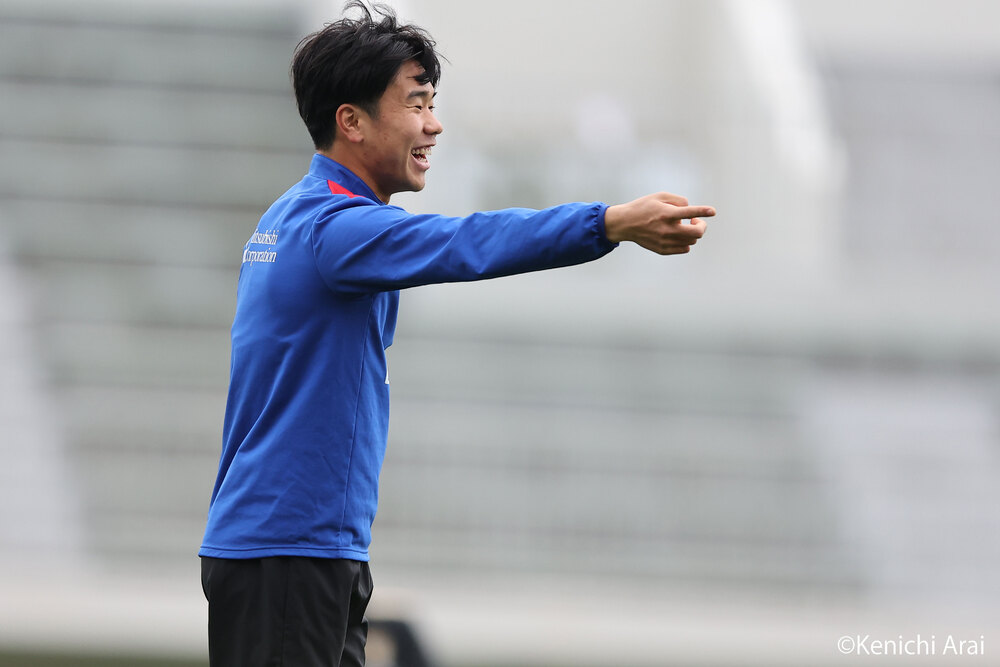
──Indeed, during my time at FC Tokyo U-18, I was a player who led the team with my voice and scored in crucial moments. I also have the desire to show the fans and supporters who have supported me since my academy days that kind of play again.
During my elementary school days at Regista FC, I was always told to focus on winning and never to lose. Of course, there is a part of enjoying soccer, but as long as you are playing, I believe the mindset of never losing to the opponent in front of you and the determination to score at crucial moments has always been instilled in me. I think that matched well with FC Tokyo U-15 Fukagawa and FC Tokyo U-18. I believe I possess a certain competitiveness or instinct for winning. I think I have shown that since my academy days, and I want to prove that I can do it in the professional world as well.
──I think that my playing style is similar to that of my senior Shuto ABE, who followed the same path from the academy to Meiji University (currently at RWD Molenbeek). Do you want to succeed in Tokyo and make your way to the world like him?
That's right, after entering Meiji University, Coach Kurita constantly made me aware of "If Abe were here, he would have done this, Abe would have done that." There were times when I was told, "If Abe were here, you would have played better." Since I have been compared to him all the time, I am definitely conscious of it. However, I am myself, so while showcasing my own characteristics, I want to become a player who can represent Tokyo and go out into the world like my senior Abe.
Does having players you played with during your academy days make it easier?
That's right. Even when I went to camp, there were many players I met during my academy days, so I was able to fit in right away, and communication was easy. I shared a room with Taishi Brandon NOZAWA in the dormitory during our time at FC Tokyo U-18. He was always participating in the first team's practices, while I was always coming back from school to go to FC Tokyo U-18's practices. He was always ahead of me, so I definitely wanted to catch up and surpass him. He is a very significant and important presence for me, and I am aware of that.
──Did you have any thoughts when Nozawa was selected for the Japan national team for the AFC Asian Cup 2023?
I immediately contacted them to say "Congratulations." However, in my heart, I was thinking, "I will definitely not lose."
──Soma ANZAI, who was playing together at FC Tokyo U-15 Fukagawa, has also made his debut ahead of the others. How did you see that?
I moved to the professional world a year earlier than university, but I didn't feel any pressure there. I really feel like I'm part of the team, and I think my playing time is quite high within the team, so it’s really motivating. There are many people who are ahead of me, like Taishi, who are doing incredibly well, and that is very inspiring, which fuels my determination to succeed as well.
I understand that players from the academy via university are struggling in the top team, and I also had considerable determination to jump into an environment where I don't know what my chances of playing will be.
I have seen Shuto OKANIWA and Tsubasa TERAYAMA go on loan and not even make it to the bench, and I think there is a possibility that I might face the same situation. However, what to do when I can't play is something I learned at Meiji University, and there are options to play in the J2 League or J3 League categories, but I believe that with entering the professional scene at the age of 22, a player's career is not that long. I have the ambition to challenge from the start in the J1 League and to definitely win in the end. While being prepared, I always think that I will absolutely succeed.
──A player whom we hope will wear the captain's armband has returned to the blue and red. There must be high expectations for an academy graduate to shine amidst the changing team.
I was raised in FC Tokyo U-15, joined FC Tokyo U-18, and I believe I have a sense of love for Tokyo and the blue-red spirit that is greater than that of other players. This season, we may not be getting results in the league, and it might seem like a tough situation. However, I believe that at Tokyo, we have the environment, players, and staff to definitely reach the top. I want to project a presence that allows me to be at the center of our journey towards that peak.
──Kumatoriya Issei and Uchida Yosuke, who were classmates at Meiji University, will wear green uniforms. If we end up facing each other, it will probably be a more intense match than usual.
Since they both get along really well, I asked, "Are you really going?" (laughs). I have thought since I joined Fukagawa that I shouldn't wear anything green. I have been told the same by Takashi HARA and Masato OTA. So, even now, I don't wear anything green. I have that kind of mindset on a regular basis, so I can't even imagine losing. I definitely want to win.
──I am looking forward to reuniting with Mr. Okuhara and the people who took care of me during my academy days in the top team.
When I participated in the camp and practice, I was told, 'You still have a long way to go.' When I joined the practice around summer, I was told, 'I'll test how much you've improved in stopping and kicking.' Mr. Okuhara skillfully guides me to bring out my motivation. I believe there are expectations involved, so I hope to meet those expectations and become even more than that.
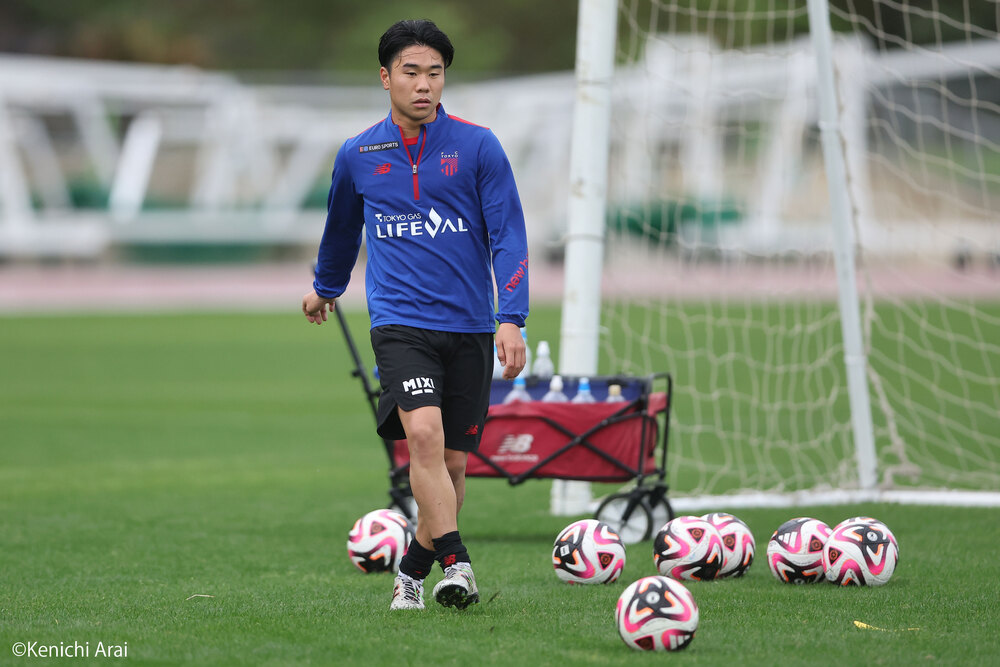
──When I talk to the academy staff, I really feel a sense of attachment and expectation. How do you want to respond to the expectations from the coaches involved?
Because it takes effort, I might be seen that way. In the academy, I really did whatever I wanted. When it was decided that I couldn't move up to the top team, I thought, 'Then I won't go anymore.' However, if I hadn't joined Fukagawa, I wouldn't be who I am today, and I believe that without my U-18 days, I wouldn't have become a professional, so I want to express my gratitude for that. Moreover, with my height and not having high physical abilities, I think that being able to enter and succeed in Tokyo's top team can be a hope not only for the academy staff but also for the players enrolled in the academy. I want to work hard from here to become a representative player of the academy.
──Finally, could you say a word to the fans and supporters?
Since the FC Tokyo U-15 Fukagawa era, I believe there is no other team that supports academy players to that extent. This is one of the factors that has greatly increased my "love for Tokyo." I also have the desire to meet the expectations of those who have supported me, so I am truly grateful, and I am determined to become a player who is supported even more. I hope to be able to evolve over the four years at university.
♢Kyota Tokiwa Profile
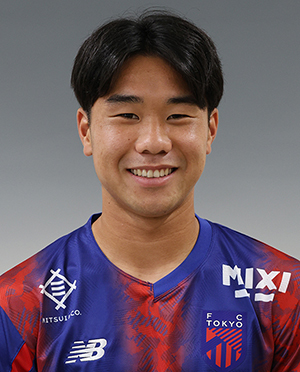
Date of Birth: April 9, 2002
Height/Weight: 173cm/70kg
Hometown: Katsushika, Tokyo
Career: FC Tokyo U-15 Fukagawa → FC Tokyo U-18 → Meiji University
Text by Kohei Baba (Freelance Writer)
